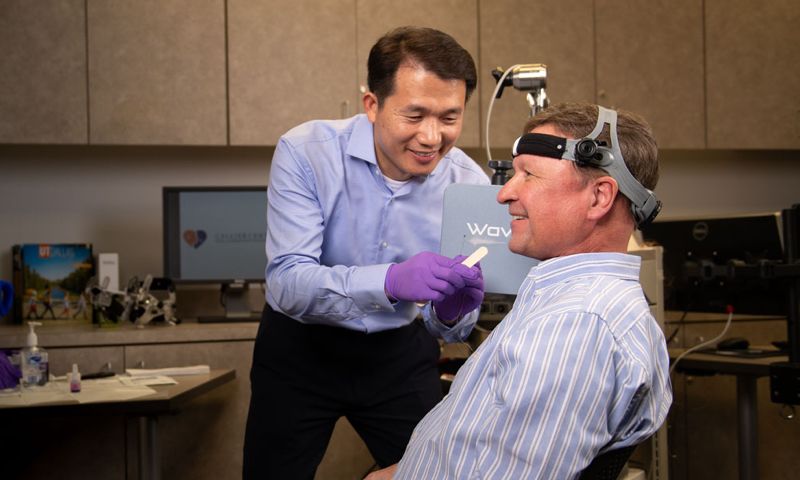
The Callier Center gives a voice to people who don’t have one, and the research of Dr. Jun Wang is a core part of that mission.
Wang is developing a silent speech processor, in which a person’s lips and tongue movements will be recognized by a sensor and then translated into spoken words. When completed, the device will help individuals who have no larynx and are unable to produce vocal sounds on their own.
“I feel like it’s kind of my responsibility now, because I can see from patients that they are looking forward to devices like this,” said Wang, who is an assistant professor of bioengineering and of communication sciences and disorders at UT Dallas.
Plano businessman Fred Venners is one patient who hopes that Wang’s research becomes reality. He had his larynx removed as a result of a cancer diagnosis in 2014 and now uses a voice prosthesis device that allows him to speak in a robotic-sounding, electronic voice.
Recently, Venners volunteered for Wang’s project by having his lips and tongue connected to a computer that captures movement information.
“I think it will help people in situations like mine,” Venners said.
Wang’s research is supported by the National Institutes of Health and by the American Speech-Language-Hearing Foundation. He hopes to have a working prototype within a few years.
“I hope this project can improve the quality of life for those who don’t have a larynx.”
– Dr. Jun Wang, Callier Center researcher